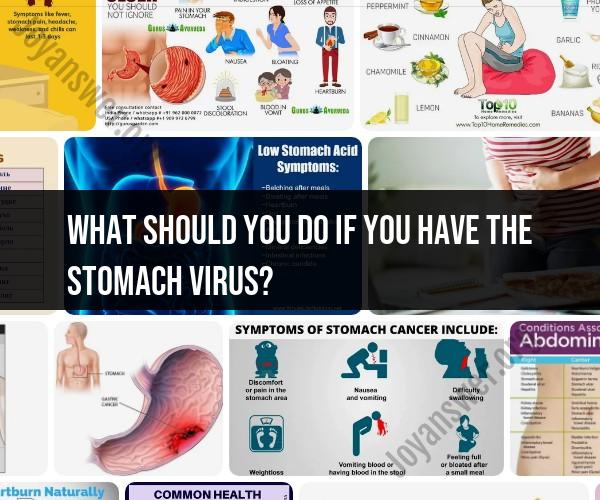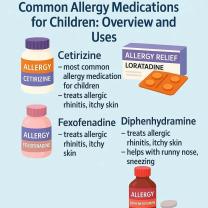What should you do if you have the stomach virus?
Recovering from a stomach virus (gastroenteritis) can be uncomfortable, but there are several steps you can take to help speed up the healing process and alleviate symptoms. Here are some tips for recovery:
Stay Hydrated: Dehydration is a common concern with stomach viruses because of vomiting and diarrhea. Drink clear fluids like water, oral rehydration solutions (ORS), or clear broths frequently to replace lost fluids and electrolytes.
BRAT Diet: Gradually introduce bland, easy-to-digest foods like bananas, rice, applesauce, and toast (BRAT) once you feel like eating. These foods can help ease stomach discomfort.
Avoid Irritating Foods: Steer clear of spicy, fatty, greasy, or heavily seasoned foods, as they can exacerbate stomach irritation. Also, avoid caffeine and alcohol, which can contribute to dehydration.
Rest: Allow your body to recover by getting plenty of rest. Resting helps your immune system fight off the virus more effectively.
Medications: Over-the-counter anti-diarrheal medications like loperamide (Imodium) can help control diarrhea, but use them cautiously and consult a healthcare professional, especially if you have a high fever or bloody stools.
Ginger and Peppermint: Ginger and peppermint tea or candies may help soothe nausea and ease stomach discomfort.
Probiotics: Consider taking probiotics, which can help restore the balance of healthy gut bacteria. Look for brands with Lactobacillus and Bifidobacterium strains.
Stay Home: Avoid going to work or school until you have been symptom-free for at least 24 to 48 hours to prevent spreading the virus to others.
Hand Hygiene: Wash your hands thoroughly with soap and water after using the bathroom and before handling food to prevent the spread of the virus to others.
Consult a Healthcare Professional: If your symptoms are severe, persistent, or accompanied by high fever, blood in stool, or signs of dehydration (e.g., dry mouth, dark urine, dizziness), seek medical attention promptly.
Reintroduce Regular Diet Gradually: As you start feeling better, gradually reintroduce your normal diet. Begin with easy-to-digest foods and avoid heavy or spicy meals.
Remember that recovery from a stomach virus can vary from person to person. It's important to listen to your body and seek medical advice if you have any concerns about your symptoms or if they worsen. Additionally, if you suspect food poisoning or have concerns about the source of your illness, consider reporting it to your local health department to prevent further cases.













